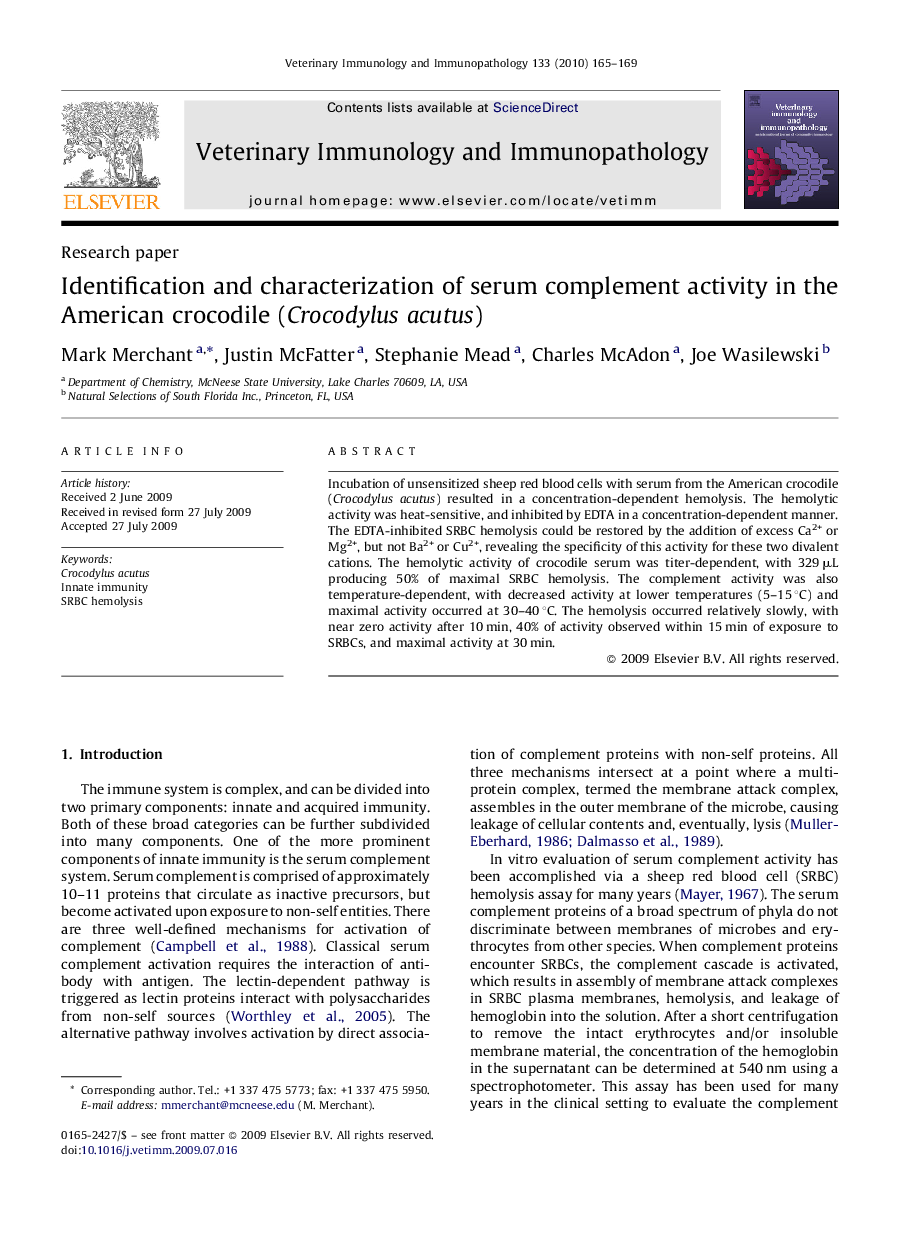| Article ID | Journal | Published Year | Pages | File Type |
|---|---|---|---|---|
| 2462490 | Veterinary Immunology and Immunopathology | 2010 | 5 Pages |
Incubation of unsensitized sheep red blood cells with serum from the American crocodile (Crocodylus acutus) resulted in a concentration-dependent hemolysis. The hemolytic activity was heat-sensitive, and inhibited by EDTA in a concentration-dependent manner. The EDTA-inhibited SRBC hemolysis could be restored by the addition of excess Ca2+ or Mg2+, but not Ba2+ or Cu2+, revealing the specificity of this activity for these two divalent cations. The hemolytic activity of crocodile serum was titer-dependent, with 329 μL producing 50% of maximal SRBC hemolysis. The complement activity was also temperature-dependent, with decreased activity at lower temperatures (5–15 °C) and maximal activity occurred at 30–40 °C. The hemolysis occurred relatively slowly, with near zero activity after 10 min, 40% of activity observed within 15 min of exposure to SRBCs, and maximal activity at 30 min.
